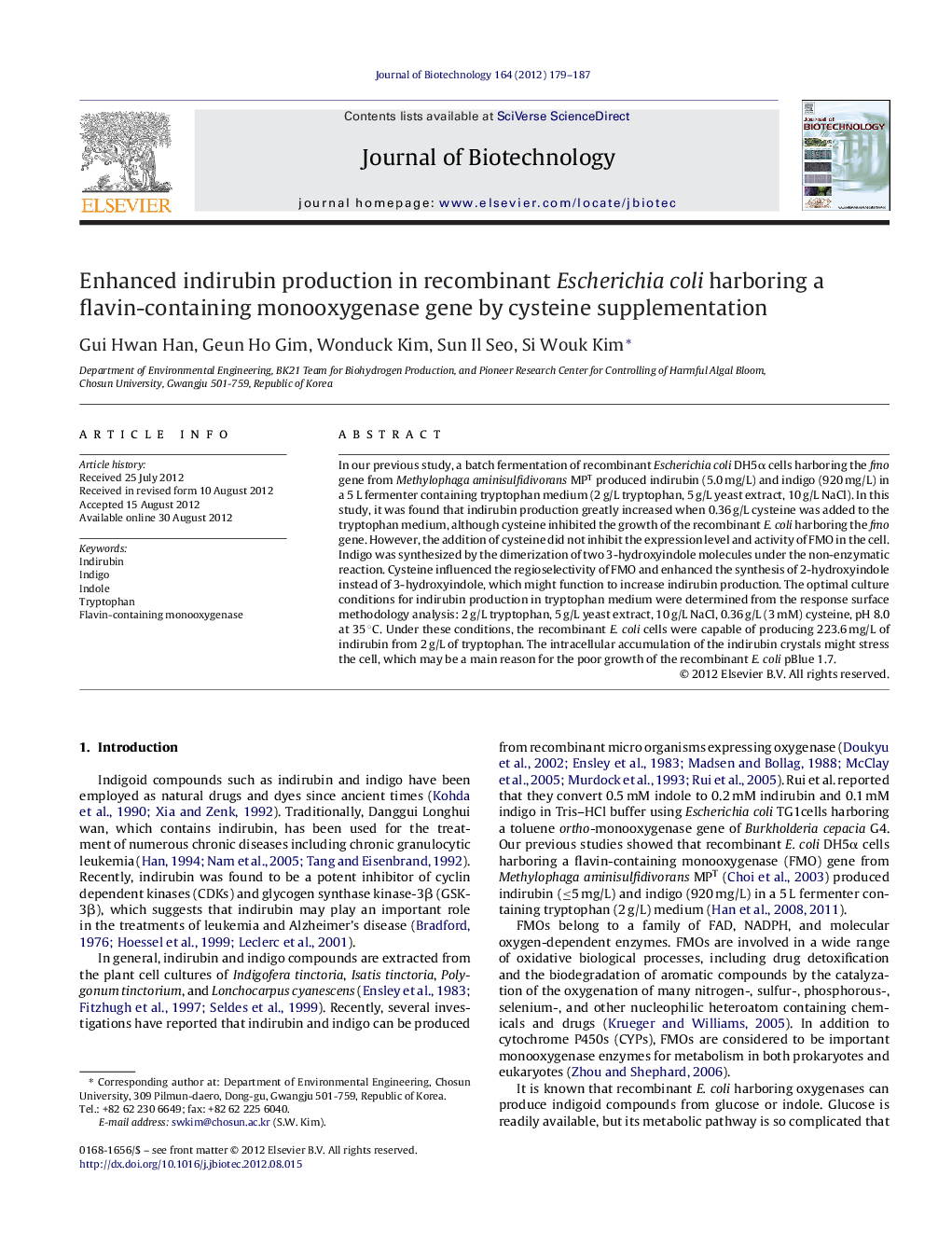| کد مقاله | کد نشریه | سال انتشار | مقاله انگلیسی | نسخه تمام متن |
|---|---|---|---|---|
| 23310 | 43431 | 2013 | 9 صفحه PDF | دانلود رایگان |

In our previous study, a batch fermentation of recombinant Escherichia coli DH5α cells harboring the fmo gene from Methylophaga aminisulfidivorans MPT produced indirubin (5.0 mg/L) and indigo (920 mg/L) in a 5 L fermenter containing tryptophan medium (2 g/L tryptophan, 5 g/L yeast extract, 10 g/L NaCl). In this study, it was found that indirubin production greatly increased when 0.36 g/L cysteine was added to the tryptophan medium, although cysteine inhibited the growth of the recombinant E. coli harboring the fmo gene. However, the addition of cysteine did not inhibit the expression level and activity of FMO in the cell. Indigo was synthesized by the dimerization of two 3-hydroxyindole molecules under the non-enzymatic reaction. Cysteine influenced the regioselectivity of FMO and enhanced the synthesis of 2-hydroxyindole instead of 3-hydroxyindole, which might function to increase indirubin production. The optimal culture conditions for indirubin production in tryptophan medium were determined from the response surface methodology analysis: 2 g/L tryptophan, 5 g/L yeast extract, 10 g/L NaCl, 0.36 g/L (3 mM) cysteine, pH 8.0 at 35 °C. Under these conditions, the recombinant E. coli cells were capable of producing 223.6 mg/L of indirubin from 2 g/L of tryptophan. The intracellular accumulation of the indirubin crystals might stress the cell, which may be a main reason for the poor growth of the recombinant E. coli pBlue 1.7.
► 0.36 g/L cysteine enhanced the production of indirubin in the recombinant Escherichia coli harboring an fmo gene.
► The cysteine modifies the synthetic pathway of 2- and 3-hydroxyindole from indole, which might function to increase indirubin production.
► The optimal culture conditions for indirubin production in tryptophan medium were determined from the RSM analysis.
► Under optimal conditions, the recombinant E. coli cells produce 223.6 mg/L of indirubin from 2 g/L of tryptophan.
Journal: Journal of Biotechnology - Volume 164, Issue 2, March 2013, Pages 179–187